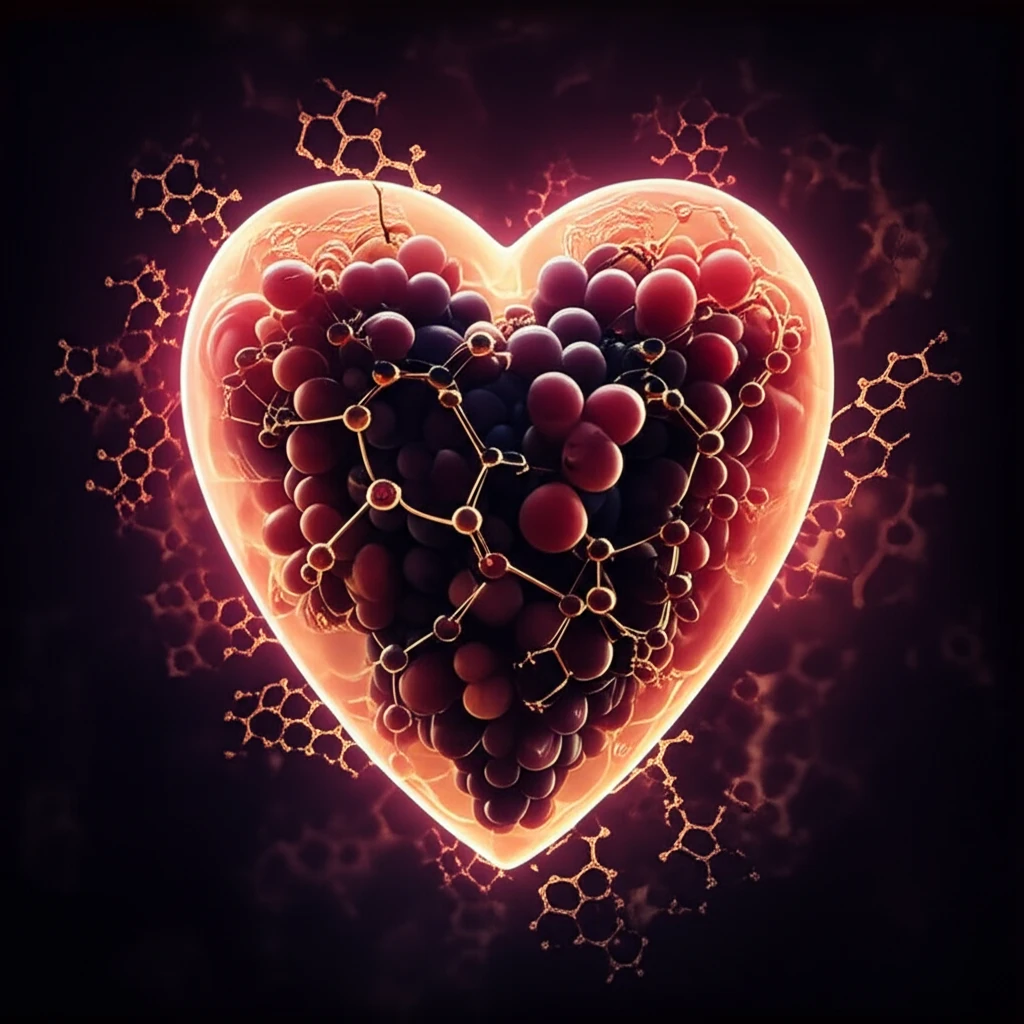
Resveratrol: The Heart-Healthy Secret to Anoxia/Reoxygenation Protection?
"Discover how resveratrol, found in red wine and grapes, protects heart cells from damage during oxygen deprivation and reoxygenation, offering a promising avenue for cardiovascular health."
In the realm of natural compounds touted for their health benefits, resveratrol stands out, not least because of its association with red wine. While often linked to longevity and anti-inflammatory effects, emerging research is highlighting its potential to protect the heart, particularly during episodes of oxygen deprivation followed by reoxygenation. This process, known as anoxia/reoxygenation (A/R), mirrors the conditions experienced during heart attacks and strokes, making resveratrol's effects a compelling area of study.
Cardiovascular diseases remain a leading cause of mortality worldwide, driving the search for effective preventive and therapeutic strategies. One area of focus is understanding how to safeguard heart cells (cardiomyocytes) during ischemic events, where blood flow and oxygen supply are interrupted. The reperfusion, while necessary to restore oxygen, can paradoxically cause further damage. This delicate balance underscores the need for interventions that bolster cellular resilience.
Recent studies have begun to unravel the mechanisms by which resveratrol may offer protection against A/R injury. This article dives into the details of this research, exploring how resveratrol interacts with key cellular pathways to mitigate damage and promote heart health. Understanding these processes could pave the way for novel approaches to prevent and treat cardiovascular conditions.
How Does Resveratrol Protect Heart Cells During Oxygen Deprivation?

The core of resveratrol's protective action lies in its ability to influence a complex interplay of cellular processes. At the heart of this is the VDAC1 protein (voltage-dependent anion channel 1), a key component in the outer membrane of mitochondria, the cell's powerhouses. During A/R, VDAC1's normal function can be disrupted, leading to increased cell damage. Research indicates that resveratrol helps maintain the health of cardiomyocytes by modulating VDAC1 activity through a specific pathway involving two other important proteins: Akt and GSK3ß.
- Activates Akt: Resveratrol boosts Akt activity, a protein kinase vital for cell survival.
- Inhibits GSK3ß: Activated Akt then puts the brakes on GSK3ß, reducing its harmful effects.
- Dephosphorylates VDAC1: With GSK3ß suppressed, VDAC1 is dephosphorylated, reducing its contribution to cell damage.
What's Next? Turning Research into Real-World Heart Protection
While these findings are promising, it's important to remember that this research is primarily conducted in laboratory settings, specifically using cell cultures. The leap from cell cultures to human trials is a significant one. Factors such as resveratrol bioavailability (how well the body absorbs and utilizes it) and optimal dosages need to be carefully evaluated in clinical studies. Also, resveratrol can affect female and male reproductive health. Despite these caveats, the research provides a solid foundation for future investigations into the potential of resveratrol as a complementary strategy for promoting cardiovascular health.
